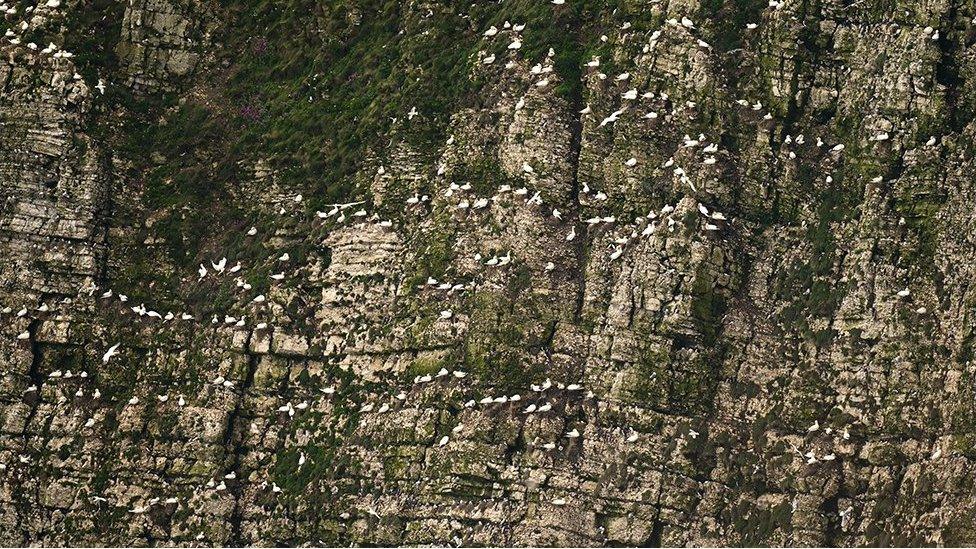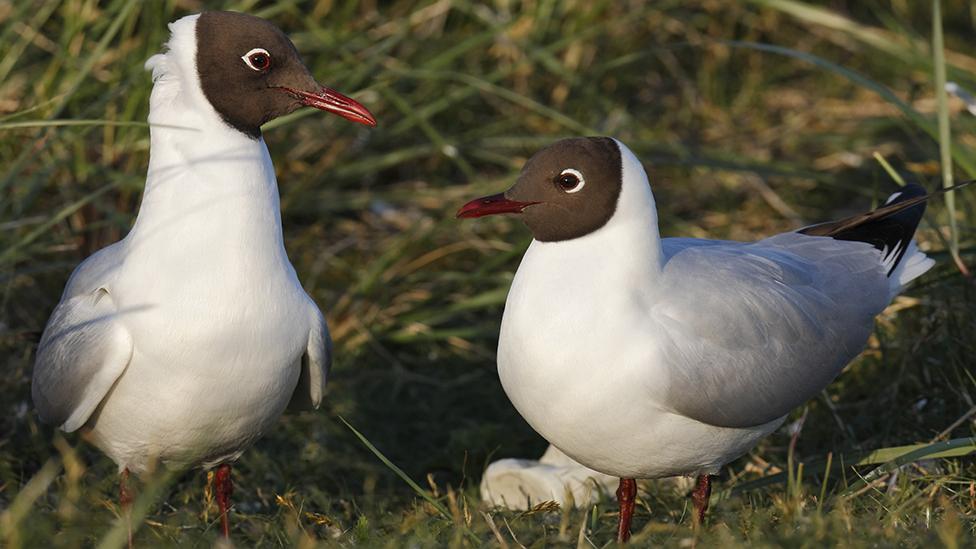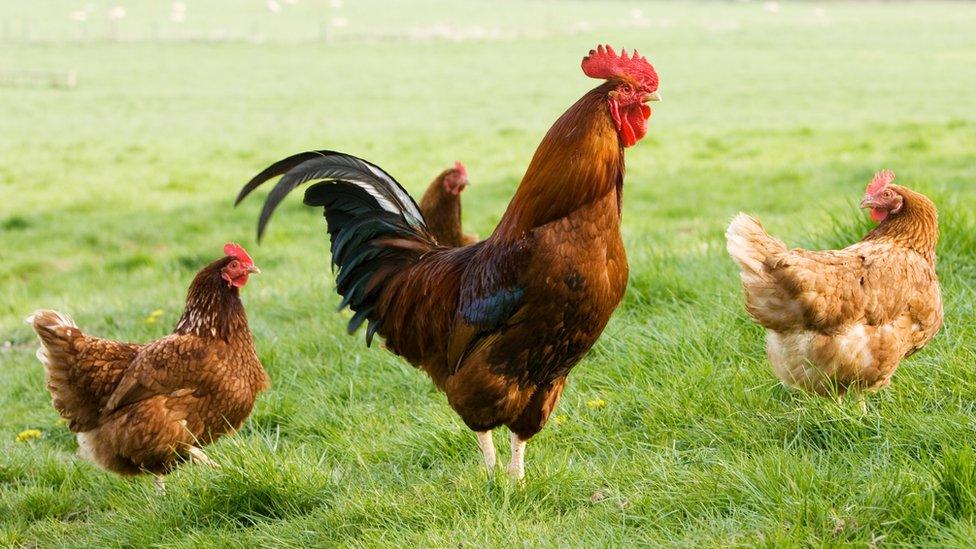Bird flu investigation after Bempton Cliffs seabird deaths
- Published

Bempton Cliffs in East Yorkshire is home to to around 500,000 sea birds during the breeding season
An investigation has begun after a number of birds were found dead at a nature reserve in East Yorkshire.
The RSPB said in a social media post that the fatalities at its site at Bempton Cliffs were being investigated for any possible link to avian flu.
The charity said that kittiwakes seemed to be particularly affected with many found dead "on the cliffs and sea".
The Department for Environment Food and Rural Affairs (Defra) said it was waiting for test results.
The RSPB said the site would remain open to the public, but warned people not to touch any dead birds they found.
The site north of Bridlington is home to about 500,000 sea birds during the breeding season.
The RSPB said many of the birds were leaving their nests as the newly-hatched young flew off.
"While it is worrying, the birds affected are in a localised area," the charity said in a Twitter post.
"It is hoped that the majority of the birds will leave the cliffs before the impact worsens."
Allow X content?
This article contains content provided by X. We ask for your permission before anything is loaded, as they may be using cookies and other technologies. You may want to read X’s cookie policy, external and privacy policy, external before accepting. To view this content choose ‘accept and continue’.
The UK population of kittiwakes has declined by about 50% in the past 25 years, resulting in the bird being identified as a conservation priority and a red-listed species, the RSPB said.
It added that the Bempton Cliffs colony was "internationally important and represents more than 3% of the UK and more than 10% of the UK and Ireland breeding population".
The birds build their nests on the sheer cliff faces and produce up to three eggs each year.
There have been a number of outbreaks of avian flu across East Yorkshire.
In April, restrictions were lifted allowing poultry and captive birds to be kept outside again.
A Defra spokesperson said as since it was unable to comment specifically about Bempton Cliffs until test results were received.
However, they added the department recognised the wider outbreak poses "a significant threat to the UK's wild bird populations" and that it shared concerns "about the impact on breeding populations, particularly seabirds that nest closely in large numbers".
The spokesperson added: "We continue to keep the outbreak in wild birds under review and work closely with partners on any action needed.
"Alongside our year-round wild bird surveillance programme, we have invested £1.5m in research to understand how this disease is behaving in wild and kept birds to inform our approach going forward."

Follow BBC East Yorkshire and Lincolnshire on Facebook, external, Twitter, external, and Instagram, external. Send your story ideas to yorkslincs.news@bbc.co.uk, external.
- Published28 April 2023

- Published14 April 2023
